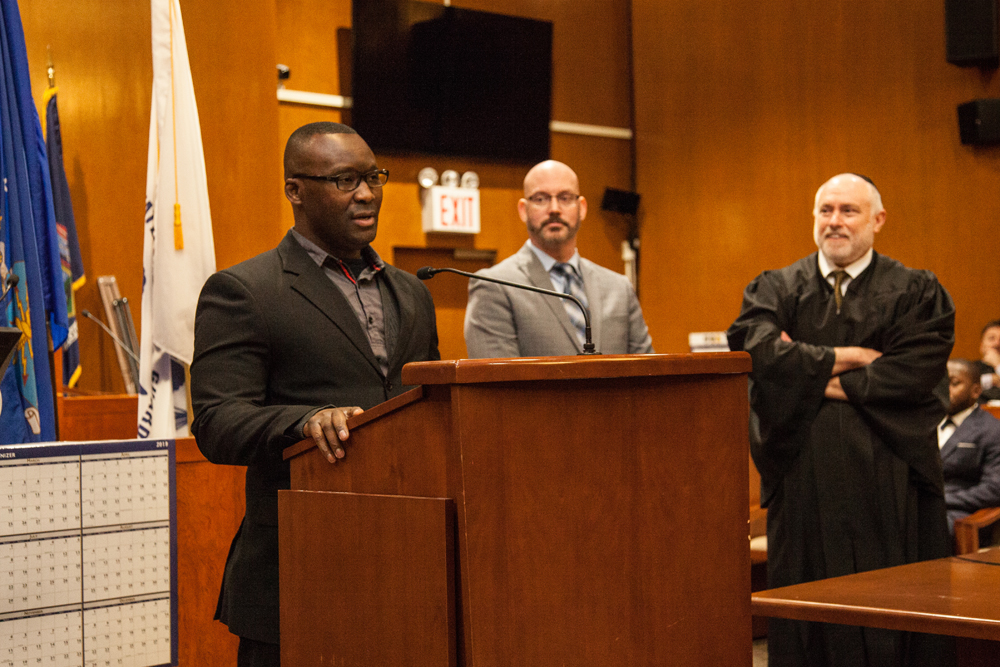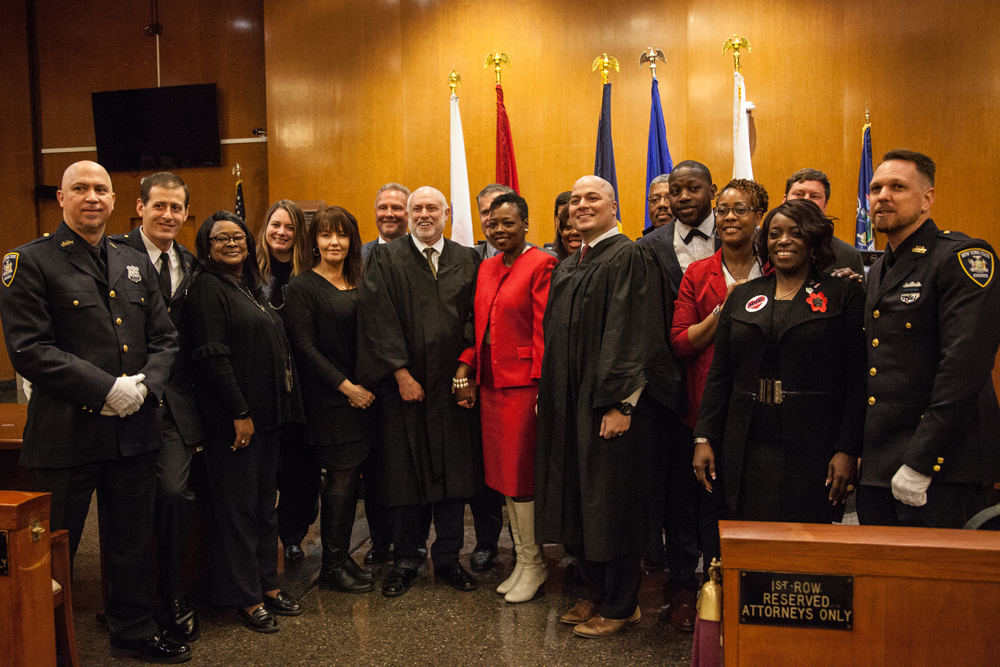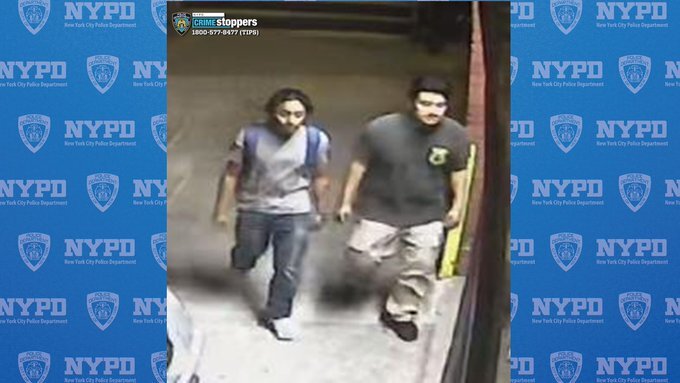Two days after Veterans Day, the Queens County Criminal Court took a concrete step toward addressing the psychological struggles that veterans often face after their service.
On Wednesday, Nov. 13, the court formalized a treatment court for veterans charged with misdemeanors.
After a year of informal existence, the Queens Misdemeanor Veterans Treatment Court (QMVTC) joined the borough’s five other treatment courts, which use a therapeutic model and mentor program, as opposed to traditional case processing.
“The dual goal of all problem solving courts here in criminal and misdemeanor land is to develop meaningful alternatives to incarceration and treat the underlying root of the criminal conduct,” said Supervising Judge Michele Johnson. “This court is to address the unique needs of our veterans who have sacrificed for all of us in this room and all of us in this country.”
The new program expands the current Queens veteran treatment court, which solely focuses on felonies.
“Because they’re low-level misdemeanors, there’s really something you can do with them. Because they’re not going to look to serve time first,” said Lori Zeno, executive director of the Queens Law Associates. “And the mentoring part that’s part of the treatment program, that’s the key.”
Veterans or active military members who are charged with a misdemeanor can opt into the program, which will assign them a court case manager as well as a peer mentor who will help them work through treatment plan tailored for their situation as an alternative to normal sentencing.
Several speakers at the opening ceremony addressed the significance of having a peer who understands the unique types of mental trauma that combat impresses on service members.
“Veterans only really want to talk to veterans and have to be talked to in a certain way,” said Sherry Klein Heitler, the chief of policy and planning for the New York State Courts.
The two presiding judges over the program Scott Dunn and Jeffrey Gershuny are both veterans themselves. According to Gershury, Queens has the third highest number of veterans of any county in New York state, and leads the five boroughs in its veteran population.
Depression, alcoholism, prescription drug use and untreated mental illness in the veteran community can often cascade into unemployment, homelessness and criminal activity. One intended result of a program like QMVTC is that it educates participants about VA benefits they may not currently be using in order to create a safety net to stop them from lapsing into destructive behavior.
Asked why Queens County waited until 2019 to employ such a program given the high level of need in the borough, Lori Zeno explained that it took the initiative of Judge Toko Serita, who created the program on her own.
“The judge who actually started didn’t do it with [Office of Court Administration’s] OK. She just did it. Then after it had been going on for a year, they were like, ‘Oh, maybe we should formalize this,’” said Zeno.
At the end of the ceremony, two veterans spoke on their experience going through treatment.
“The veterans court has given my life back to me and I’m eternally grateful,” said Christopher Porr, a graduate of the QMVTC.



































